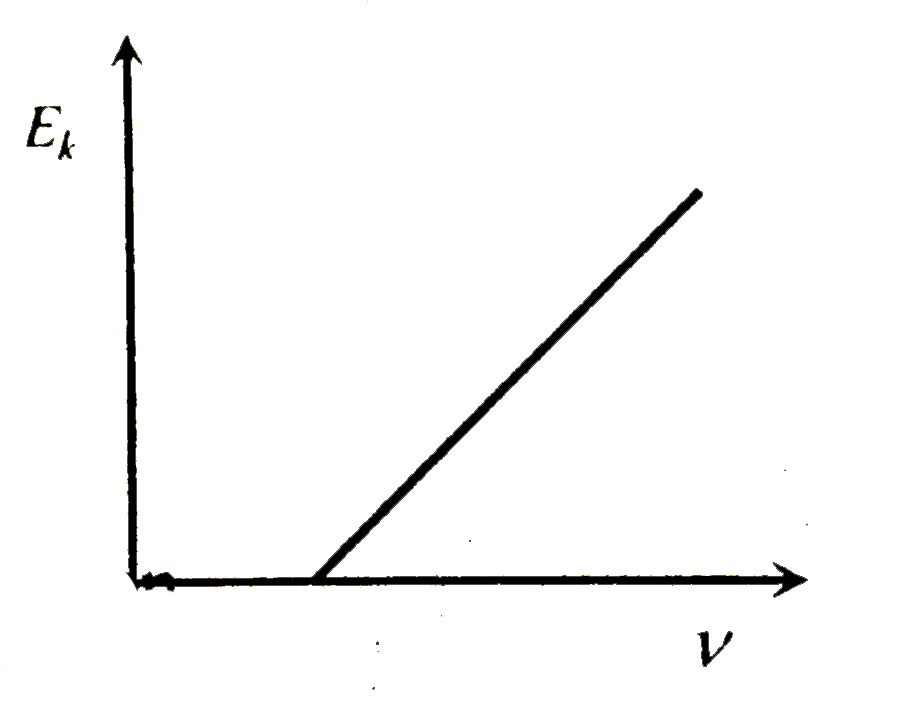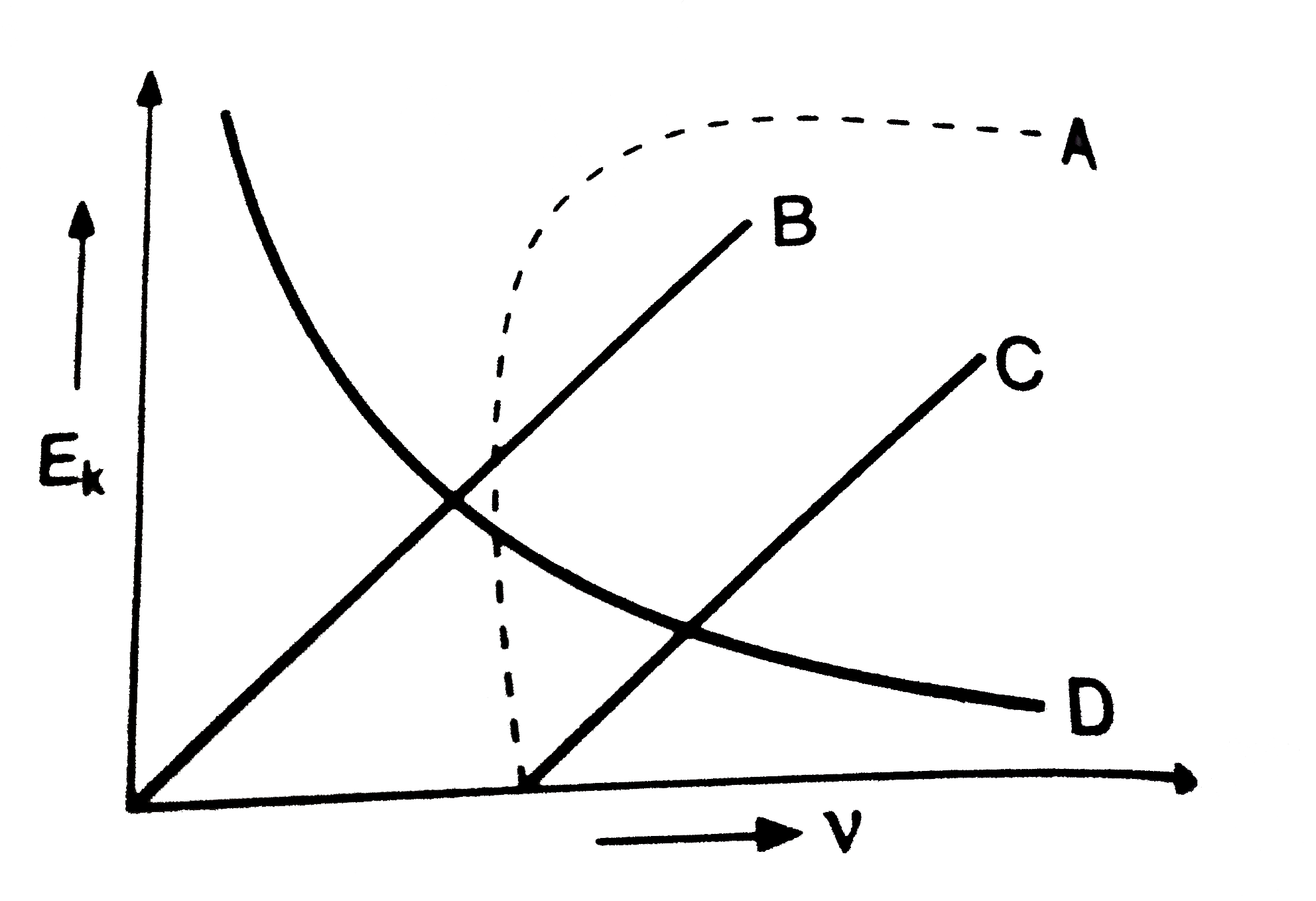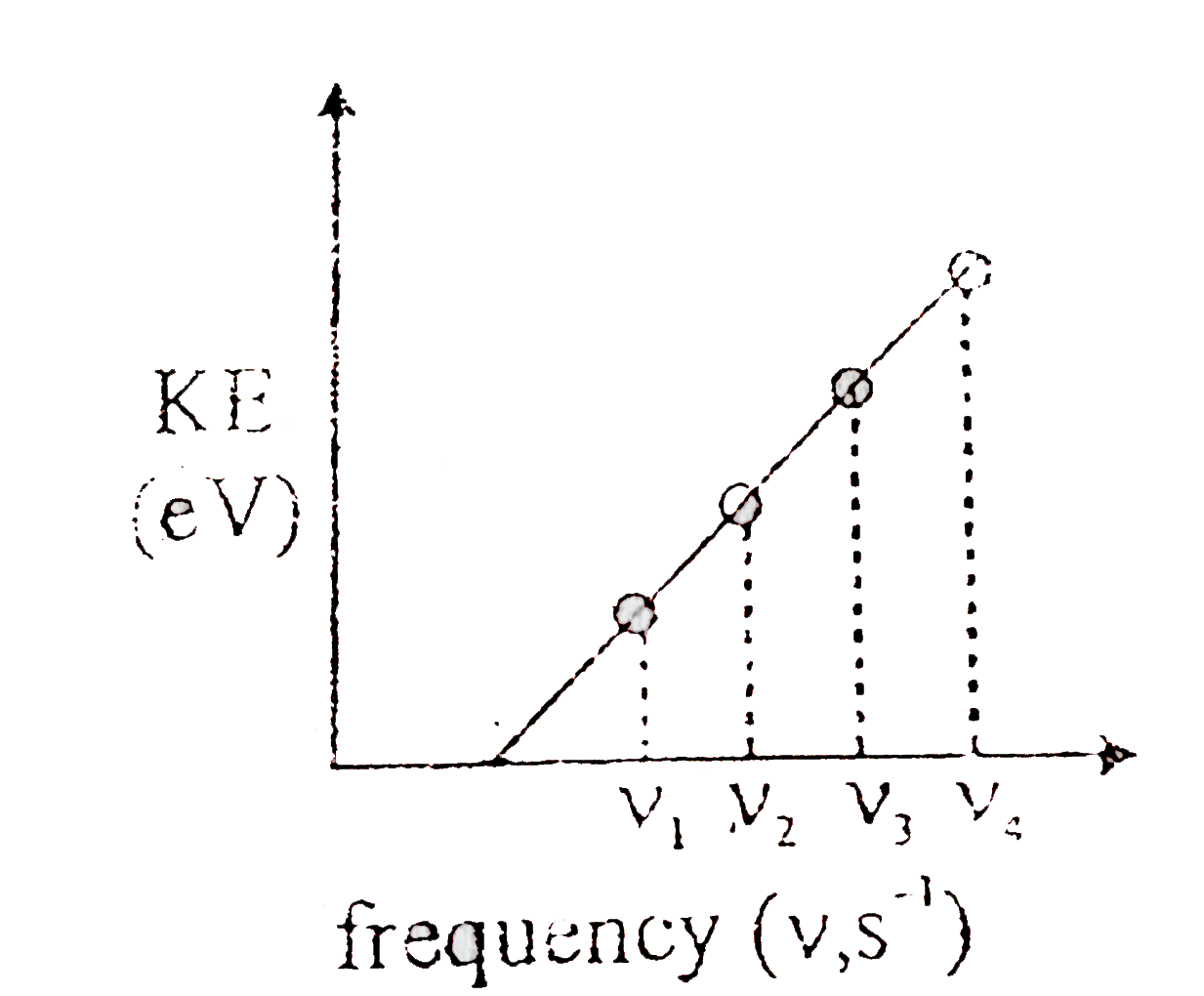For the photoelectric effect, the maximum kinetic energy Ek of the emitted photoelectrons is plotted against the frequency of the incident photons as shown in the figure. The slope of the curve gives

charge of the electron
work function of the metal
Plank's constant
ratio of the Plank's constant to electronic charge
The correct Answer is:C
Step by step video, text & image solution for For the photoelectric effect, the maximum kinetic energy E_(k) of the emitted photoelectrons is plotted against the frequency of the incident photons as shown in the figure. The slope of the curve gives by Chemistry experts to help you in doubts & scoring excellent marks in Class 12 exams.
Updated on:21/07/2023Topper's Solved these Questions
Similar Questions
According to Einstein's photoelectric equation, the graph between kinetic energy of photoelectrons ejected and the frequency of the incident radiation is :
View SolutionThe maximu kinetic energy (Ek) of the photoelectron varies with frequency (v) of the incident light as shown by the curve:

View Solution
Knowledge Check
For the photoelectric effect, the maximum kinetic energy Ek of the emitted photoelectrons is plotted against the frequency ν of the incident photons as shown in the figure. The slope of the curve gives
 ACharge of the electronBWork function of the metalCPlanck's constantDRatio of the Planck’s constant to electronic charge
ACharge of the electronBWork function of the metalCPlanck's constantDRatio of the Planck’s constant to electronic chargeFor the photoelectric effect, the maximum kinetic energy Ek of the emitted photoelectrons is plotted against the frequency of the incident photons as shown in the figure. The slope of the curve gives
 Acharge of the electronBwork function of the metalCPlank's constantDratio of the Plank's constant to electronic charge
Acharge of the electronBwork function of the metalCPlank's constantDratio of the Plank's constant to electronic chargeThe maximum kinetic energy of the photoelectrons depends only on
AIntensity of incident radiationBFrequency of incident radiationCSpeed of incident radiationDNumber of photons in the accident radiation
Maximum kinetic energy (Ek) of a photoelectron varies with the frequency (v) of the incident radiation as
View SolutionIn photoelectric effect, the kinetic energy of photoelectrons increases linearly with the
View SolutionThe kinetic energy (Ek) of a photoelectron varies with the frequency (v) of the incident radiation as which of the following graph ?
View SolutionIn photoelectric effect the maximum kinetic energy of electrons emitted from the metal surface depends upon
View SolutionIn a photoelectric experiment, kinetic energy of photoelectrons was plotted against the frequency of incident radition (v), as show in figure. Which of the following statements is correct ?

View Solution